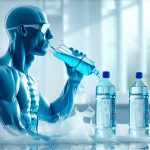Our bodies are remarkable machines, constantly engaged in countless chemical reactions – from digesting food and converting it into energy, to repairing tissues and fighting off illness. These reactions, while essential for life, also produce byproducts called reactive oxygen species (ROS) and other free radicals. While some level of these is normal and even necessary for certain biological processes like immune function, an overabundance can lead to oxidative stress, a major contributor to cellular damage and various health concerns. Understanding how we can mitigate this stress is crucial for overall wellbeing, and surprisingly, one of the most fundamental approaches – adequate hydration – often gets overlooked.
Hydration isn’t simply about quenching thirst; it’s about providing the necessary environment for our cells to function optimally and defend themselves against these damaging reactions. Water serves as a solvent, facilitating countless biochemical processes, including those involved in neutralizing free radicals and supporting antioxidant defenses. It also plays a pivotal role in waste removal, flushing out toxins that exacerbate oxidative stress. Beyond its direct impact on cellular health, proper hydration influences everything from cognitive function to energy levels, impacting our ability to cope with stress – another significant contributor to increased ROS production. Essentially, staying well-hydrated is a cornerstone of proactive health management and a surprisingly powerful tool in reducing the burden of reactive processes within the body. You can learn more about how hydration preventing bloating supports overall wellbeing.
The Science Behind Hydration & Antioxidant Defense
The connection between hydration and antioxidant defense isn’t merely anecdotal; it’s rooted in biochemical principles. Water molecules themselves can participate in neutralizing free radicals, donating electrons to stabilize them. However, water’s most significant contribution comes from its role in supporting the activity of endogenous antioxidants – substances produced naturally by the body like glutathione, superoxide dismutase (SOD), and catalase. These enzymes rely on a hydrated cellular environment to function effectively. Without sufficient water, their structure can be compromised, reducing their ability to neutralize ROS.
Moreover, hydration impacts the production of these antioxidant enzymes. Studies have shown that dehydration can decrease levels of glutathione, a critical antioxidant found in every cell of the body. This reduction leaves cells more vulnerable to oxidative damage. The efficiency of cellular respiration – the process by which cells convert nutrients into energy – is also dependent on adequate hydration. Suboptimal hydration leads to less efficient cellular respiration and consequently, increased production of ROS as a byproduct.
Finally, water plays an essential role in maintaining cell membrane integrity. Cell membranes are primarily composed of lipids, and their fluidity is crucial for nutrient transport and waste removal. Dehydration reduces membrane fluidity, impairing these processes and potentially leading to increased oxidative stress. A well-hydrated cellular environment fosters optimal function across the board, bolstering our natural defenses against reactive species. For those struggling with digestive issues, understanding digestive enzymes reducing gas may be helpful in supporting overall gut health and nutrient absorption.
Hydration & Mitochondrial Function
Mitochondria are often referred to as the “powerhouses” of the cell, responsible for generating the majority of our energy (ATP). However, this energy production isn’t without its downsides; a significant portion of ROS is generated within the mitochondria during cellular respiration. The efficiency of mitochondrial function directly impacts the amount of ROS produced. Dehydration stresses mitochondria, reducing their capacity to efficiently generate ATP and increasing electron leakage – the primary cause of free radical formation.
- A stressed mitochondrion produces more ROS than a healthy one.
- Hydration supports efficient electron transport chains within the mitochondria.
- Adequate water intake improves mitochondrial biogenesis (the creation of new mitochondria).
Essentially, staying hydrated is an investment in mitochondrial health, which translates to reduced ROS production and improved cellular energy levels. This creates a positive feedback loop: healthier mitochondria generate less oxidative stress, while sufficient hydration supports their continued function. Researchers are increasingly exploring the link between chronic dehydration and mitochondrial dysfunction as contributing factors to age-related diseases. Maintaining adequate hydration preventing indigestion can play a role in supporting these vital cellular processes.
The Role of Electrolytes in Hydration & Reactive Species Management
Hydration isn’t solely about water intake; electrolytes – minerals like sodium, potassium, magnesium, and calcium – play a critical role in maintaining fluid balance and supporting cellular function. Electrolytes are essential for nerve impulse transmission, muscle contraction, and regulating pH levels within cells. An imbalance of electrolytes can exacerbate oxidative stress by disrupting cellular processes and increasing ROS production.
Magnesium, for example, is crucial for the activity of superoxide dismutase (SOD), a key antioxidant enzyme. Potassium also plays a role in maintaining cell membrane potential, which influences antioxidant defenses. When dehydrated, we often lose electrolytes through sweat and urine. Simply drinking water without replenishing these lost minerals can lead to an electrolyte imbalance, potentially negating some of the benefits of hydration.
Consider these steps for optimal hydration:
1. Drink water consistently throughout the day, not just when thirsty.
2. Incorporate electrolyte-rich foods into your diet (e.g., bananas, spinach, avocados).
3. During periods of intense physical activity or in hot weather, consider an electrolyte replacement drink.
It’s also worth noting that physical activity reducing gas can contribute to overall health and wellbeing.
Hydration & Detoxification Pathways
Our bodies have natural detoxification pathways to eliminate waste products and toxins that contribute to oxidative stress. The kidneys and liver are central to these processes, and both rely heavily on adequate hydration for optimal function. Kidneys filter blood and remove waste through urine; dehydration reduces kidney efficiency, allowing toxins to accumulate in the body. Similarly, the liver metabolizes toxins, converting them into less harmful substances that can be eliminated. This metabolic process requires water, and dehydration impairs the liver’s ability to effectively detoxify.
Furthermore, lymphatic drainage – a crucial part of our immune system responsible for removing cellular waste – is significantly impacted by hydration levels. Lymph fluid primarily consists of water, and dehydration thickens lymph fluid, hindering its flow and reducing its capacity to clear toxins from tissues. A well-hydrated lymphatic system supports efficient detoxification and reduces the burden on other organs like the kidneys and liver. By supporting these natural detoxification pathways, adequate hydration minimizes exposure to harmful substances that trigger oxidative stress and promote cellular damage. This isn’t about ‘flushing’ toxins out; it’s about enabling the body’s inherent ability to manage and eliminate them effectively. For those navigating health challenges, understanding role of nutritionists in cancer care can provide valuable support. Additionally, recognizing hydration preventing stomach discomfort is key to maintaining digestive health.


















